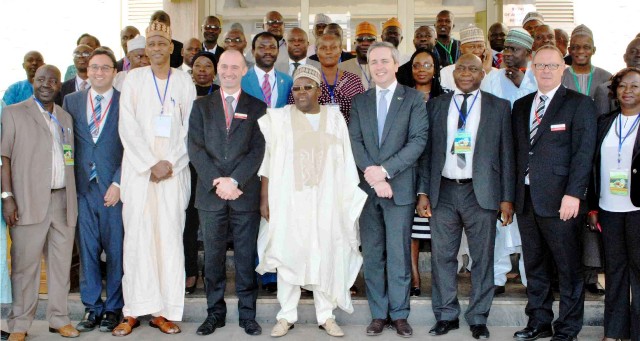Business
Kaduna Airport: FG Installs World-Class Safety Equipment

The Federal Government has successfully installed safety equipment such as instrument landing system, low level wind share and other navigational aids to facilitate smooth operations at Kaduna International Airport.
Alhaji Muhammed Joji, Chairman, Transit Committee for Abuja-Kaduna Movement during Abuja Airport closure, disclosed this in an interview with newsmen yesterday.
The installation of the equipment is to enable the airport take all types of aircraft as the Nnamdi Azikiwe International Airport, Abuja, would be closed for six weeks for repair of its runway.
Joji, who is also the Managing Director, Skypower Express Airways, added that the adequate safety measures had been taken to enable the airport accommodate all types of aircraft.
He said that world class Instrument Landing System (ILS), localizer and glide slope had been successfully installed, adding that the calibration of the equipment would take place any moment.
ILS, according to him, operates as ground-based instrument approach system that provides precision lateral and vertical guidance to an aircraft approaching and landing on a runway, using a combination of radio signals.
“With glide slope instrument, the pilot ensured the aircraft followed the glide path of approximately three degrees above ground level to remain above obstructions and reach the runway at the proper touchdown point.
“The basic structure of the runway with a length of 3,000 metres and 60 metres wide is sufficient to handle a wide body aircraft.
“Therefore, we have recommended that the extended part of the runway be converted to blast pad covered with loose gravel in the event that an aircraft overshot the runway,’’ he said.
Joji explained that the need for Blast Pad arose after the Air France A340 Aircraft number F-GLZO overshot the runway during landing at Toronto Airport, Canada on Aug. 2, 2005.
He told NAN that the International Civil Aviation Organisation (ICAO), stipulated that a minimum of 300 metres be provided at either end of the runway as blast pad.
According to him, this kind of loose gravels provided to slow down the aircraft is most effective using reverse thrusting and braking system.
The Captain also disclosed that the Federal Airport Authority of Nigeria (FAAN) had commenced the expansion of packing space with the construction of additional apron in the airport.
He frowned at the decision of some foreign airlines not to fly to Kaduna, stressing that it was wrong for foreign airlines to dictate to their host country.
According to him, let us wait till March 8 when the operation will commence to see if airlines will or will not fly to Kaduna.
“Eight international and eight domestic airlines will have to move to Kaduna but Emirate and Kenya airways have already pulled out till further notice.
“The expected increase in activities at Kaduna airport require a total restructuring of the airport and this include but not limited to land and airside.
“During the six weeks closure period, there will be 8,700 aircraft movement to and from Kaduna with an average daily movement of 2,017 aircraft.
“Currently, the passenger movement during the period will be 605,769, which translates to 100,962 passengers traffic, even from other states in the north who normally fly to Abuja,’’ he said.
Joji, however, urged FAAN to stop collecting parking charges from airlines, saying the practice was not in tandem with international best practices.
While calling on government to encourage airlines through formulation of right policies, he said that the country’s business environment was unfavourable to aviation business.
The Federal Government had earlier announced its decision to shut Nnamdi Azikiwe International Airport, Abuja, for the reconstruction of repair of its runway from March 8.
It had also announced the diversion of all Abuja bound flights during the period to Kaduna airport.
Business
NCDMB, Dangote Refinery Unveil JTC On Deepening Local Content
Business
Food Security: NDDC Pays Counterpart Fund For LIFE-ND Project
Business
Replace Nipa Palms With Mangroove In Ogoni, Group Urges FG, HYPREP
-
Opinion5 days ago
Is Nigeria Democratic Nation?
-

 News5 days ago
News5 days agoRSG Tasks Rural Dwellers On RAAMP …As Sensitization Team Visits Akulga, Degema, Three Others
-

 News5 days ago
News5 days ago2027: I Stand With Southern Presidency -Ortom
-
Politics5 days ago
Lagos LG Polls: Police Restrict Movement, Tightens Security
-

 Politics5 days ago
Politics5 days agoReps Constitution Review Committee Holds Zonal Hearing For Rivers, C’River, Akwa Ibom In Calabar
-
Opinion5 days ago
Checking Herdsmen Rampage
-

 News5 days ago
News5 days agoI’m Committed To Community Dev – Ajinwo
-
News5 days ago
Tinubu, Govs Forum Congratulate Okpebholo On S’Court Victory …As Obaseki Expresses Disappointment

